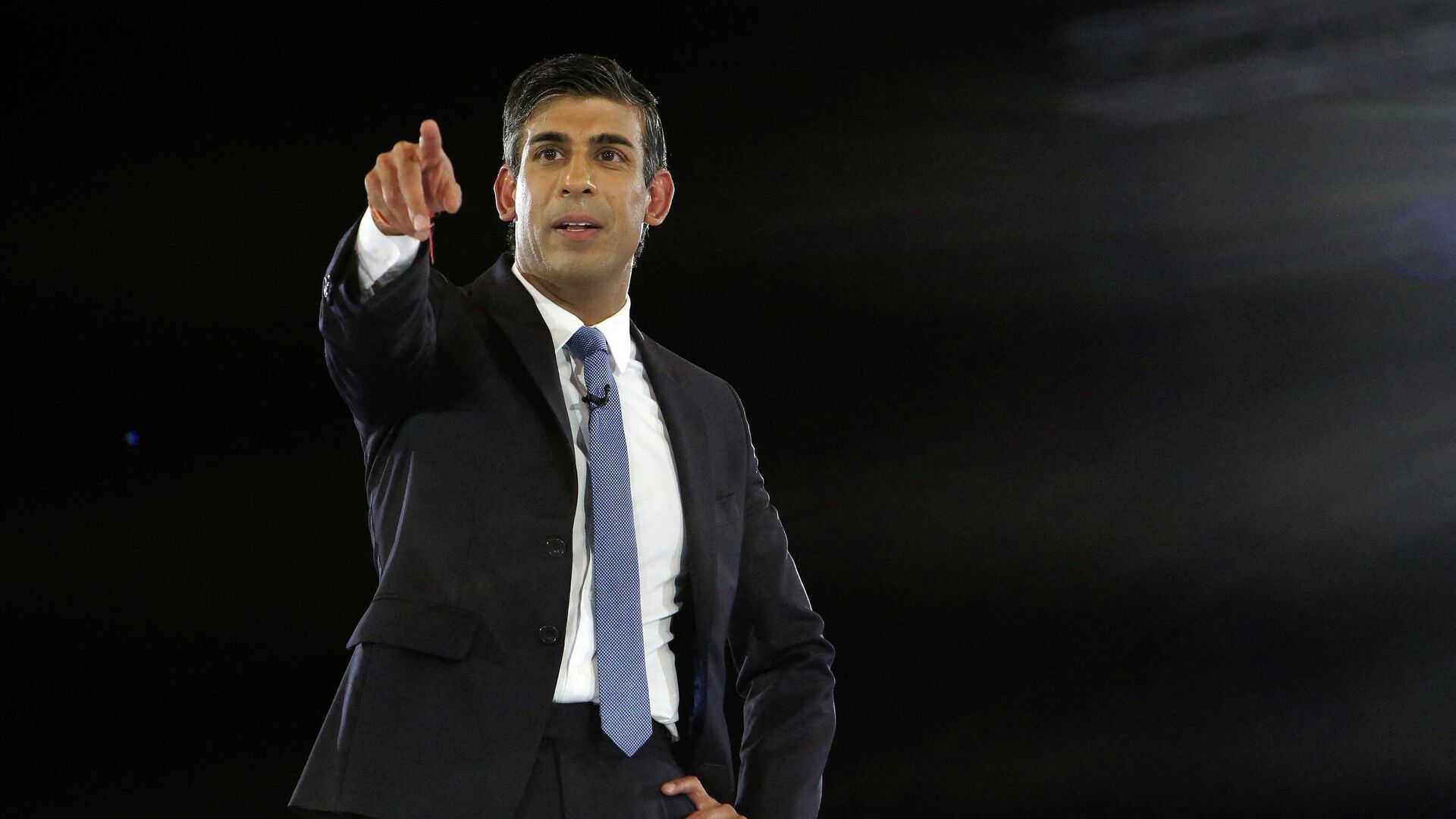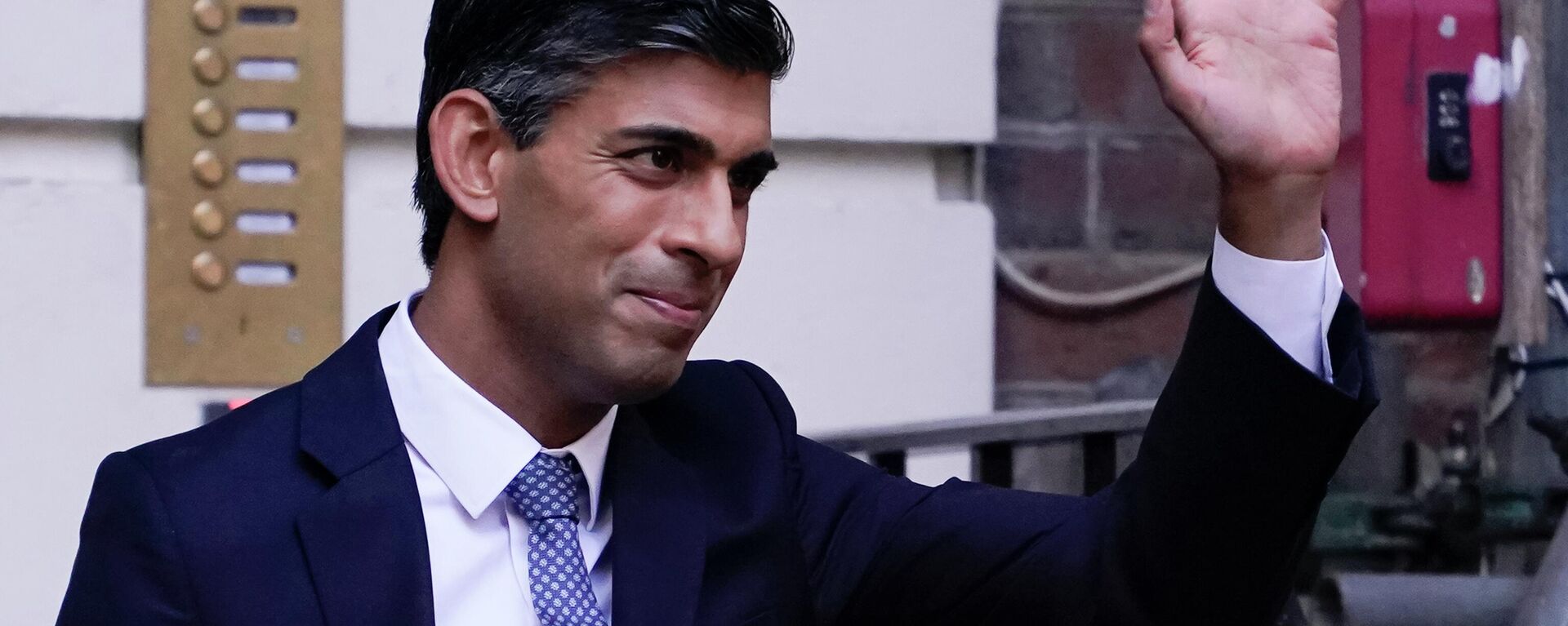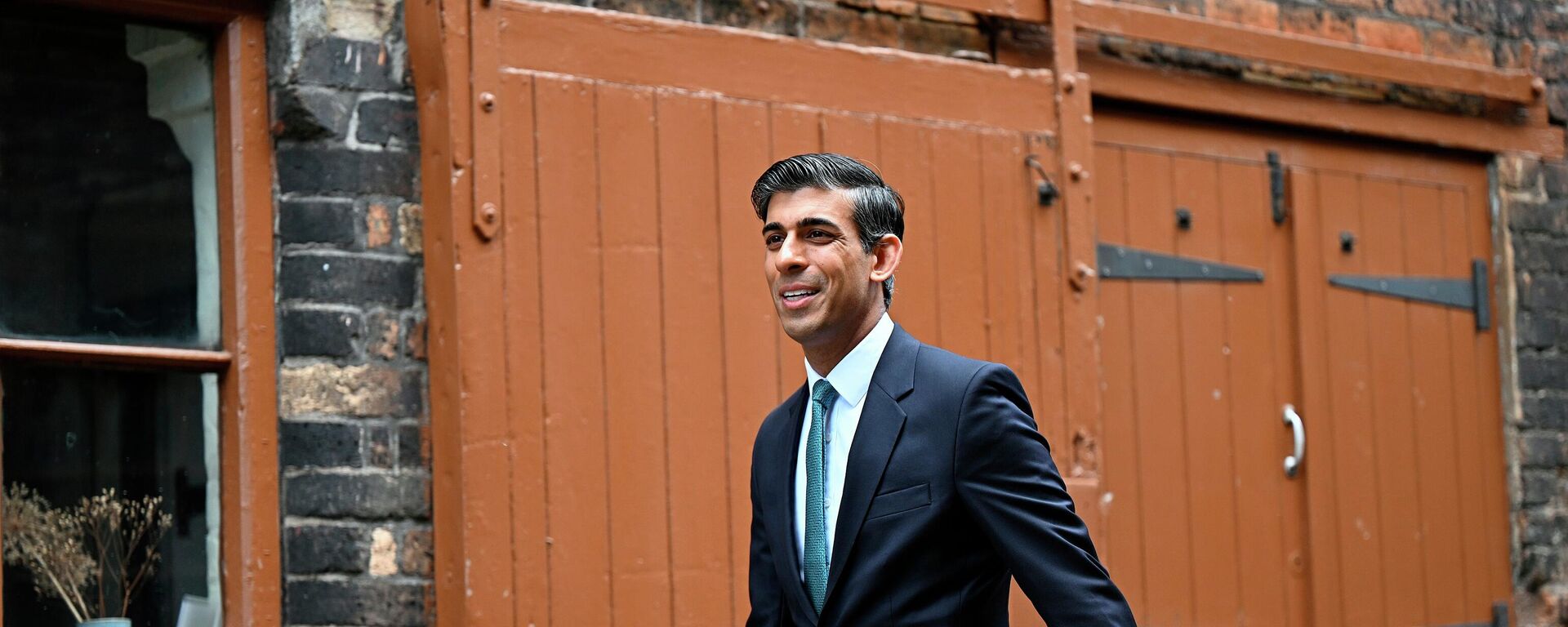Ex-MEP: Sunak's Cabinet Reshuffle Means Nothing for UK's Structural Crisis
19:39 GMT 25.10.2022 (Updated: 15:24 GMT 28.05.2023)

© AFP 2023 / SUSANNAH IRELAND
Subscribe
New British Prime Minister Rishi Sunak has started to reshuffle No 10 in a bid to form a government of "all the talents" and maintain unity within the largely divided Conservative Party.
Unlike his two predecessors, Liz Truss and Boris Johnson, UK PM Rishi Sunak has tapped Conservatives from different factions instead of packing his cabinet with loyalists.
Jeremy Hunt and Ben Wallace are keeping their jobs, and so is Penny Mordaunt, Sunak's two-time leadership competitor. Suella Braverman, known for her hard-right rhetoric, is back as home secretary. Dominic Raab has become deputy PM and Justice Secretary; and Nadhim Zahawi, who backed Boris Johnson's second advent to No 10, has been appointed Conservative Party chairman.
"Since the UK's economic crisis is structural and deep-rooted, the change of PM and a Cabinet reshuffle will change nothing," former MEP Nick Griffin told Sputnik. "The Tories may or may not be right in their belief that the BBC and other liberal-left media outlets will be less harsh on a multi-millionaire Indian Hindu than they would on a privileged white man, but no amount of rearranging the deckchairs can make a difference when you're stuck on the Titanic."
The Sunak government obviously has a lot on its plate: starting with the weak pound sterling, turbulent market, and crisis of living standards and ending with anemic economic growth and a deepening recession. S&P Global economists are predicting that Britain could be headed toward a deep recession, with the country's economic activity contracting at its fastest pace in almost two years this October.
Under these circumstances, the new British prime minister urged his party fellows to "unite or die" in order to preserve power and team up to tackle economic hardships. Sunak's concerns are quite understandable, according to Griffin.
"If the Tories continue their rebellions and public cat-fights, they face electoral annihilation," the ex-MEP said. "This fact will concentrate their minds and produce at least an appearance of relative unity for a while."
Likewise, the Tories are not going to hold early elections as they cling to power in the face of polls showing a surge in support for the Labour Party and dire numbers for the Conservatives: "Not even the most stupid of Tory turkeys would vote for an early Christmas when there is no constitutional or even political reason to have one," Griffin remarked. Meanwhile, Labour's rise is mainly due to a string of political mistakes made by the Tories, according to him.
"The shambles in the Conservative party has succeeded in making the Labour party look the better bet for handling the economy for the first time in about seventy years; this really is a staggering 'achievement'," Griffin pointed out. "Coupled with the Tories' increasingly strident support for mass economic immigration, it means that the Conservatives have thrown away the only two winning cards in their electoral hand. A change in the ruling party now looks to be the inevitable result of the next general election, which is likely to occur sometime in the second half of 2024."
The former European Parliament member is rather skeptical about the Sunak government's ability to reverse the course of Britain's unfolding economic crisis. Similarly, he expects that the new premier will continue to bow to Washington, escalate tensions with Russia, and potentially embrace a green agenda thus further undermining the UK's energy security.
"None of this changes anything," Griffin said about the new Tory cabinet. "Parliament is nothing more than a rubber stamp for a plutocratic, deep state establishment, made up of big capital, the Whitehall civil service elite, influential think-tanks, media barons and the security services. The parliamentary 'choice' between Blue Tweedledum and Pink Tweedledee exists only to provide a fig leaf of popular accountability. The policy of confrontation with Russia, subservience to Washington, and the continuation of the Davos agenda for energy suicide and surveillance corporate feudalism will all continue unabated."



